By Emy Regan, OUR Peer Research Ambassador
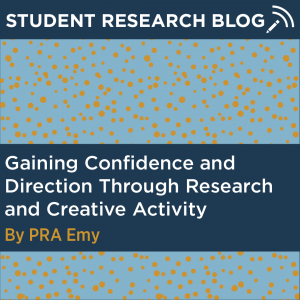 Recently, I have been reflecting on my experience doing creative activity and research. I have gained so many valuable things from writing and illustrating a comic book through an IDEA grant. I’ve built amazing relationships with mentors, I’ve gained technical skill, but most valuable of all, I’ve gained confidence that I want to pursue a career in narrative illustration.
Recently, I have been reflecting on my experience doing creative activity and research. I have gained so many valuable things from writing and illustrating a comic book through an IDEA grant. I’ve built amazing relationships with mentors, I’ve gained technical skill, but most valuable of all, I’ve gained confidence that I want to pursue a career in narrative illustration.
Research and creative activity can be a key to figuring out your aspirations and gaining direction. I knew when I started this project that there was a distinct possibility that I was not going to enjoy working independently on a comic book for a year. I had never worked on any project that long, let alone writing and illustrating a full book. However, I wanted to see if this career field was for me, and my research gave me an opportunity to test out this type of working situation while I had the guidance of the Office of Undergraduate Research and my mentors. Continue reading
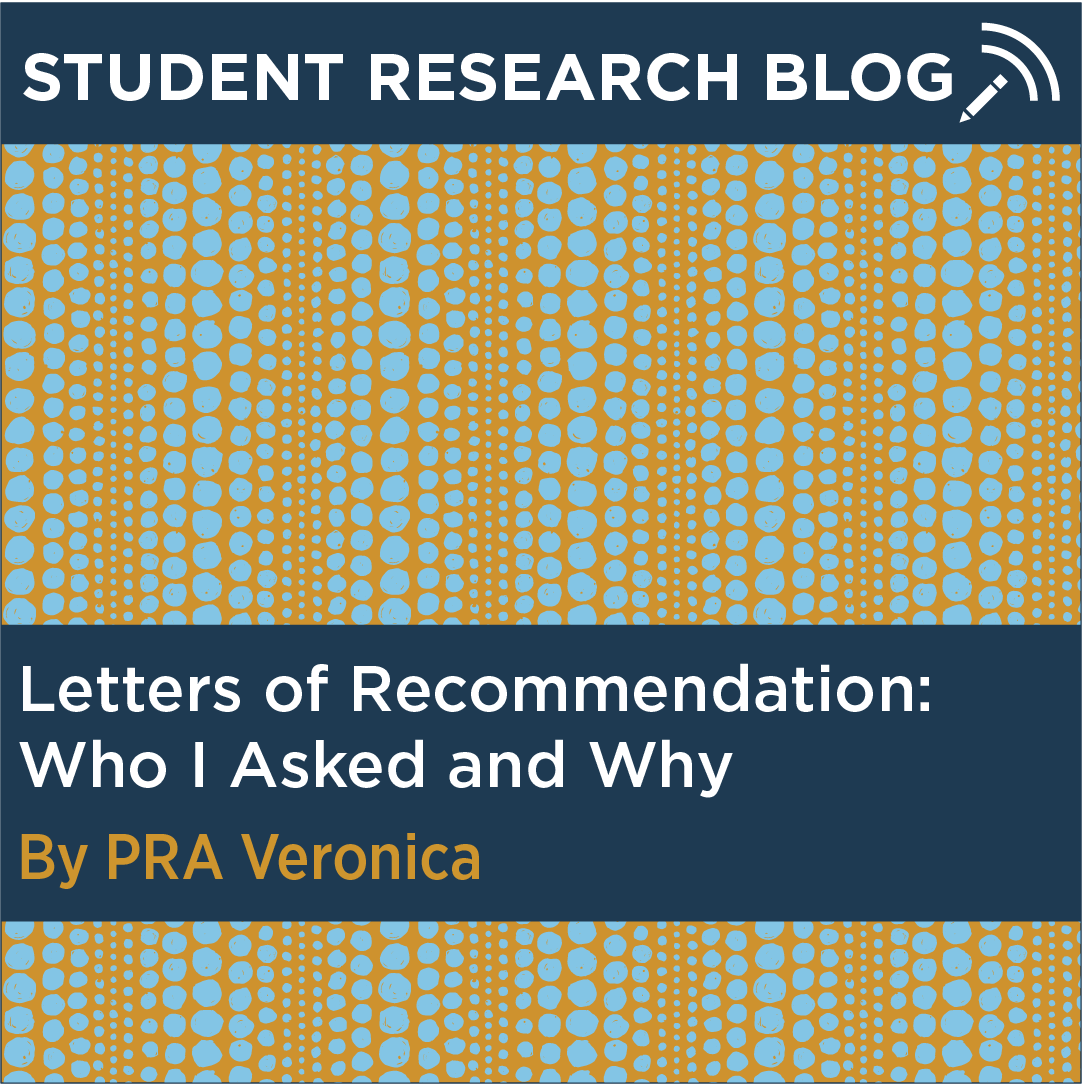 If you’re a senior, chances are you’re considering either graduate school or full time employment after graduation. If you chose the former, then you probably need a few letters of recommendation for your applications. Who do you ask? How do you form relationships with faculty who can write you letters of recommendation?
If you’re a senior, chances are you’re considering either graduate school or full time employment after graduation. If you chose the former, then you probably need a few letters of recommendation for your applications. Who do you ask? How do you form relationships with faculty who can write you letters of recommendation?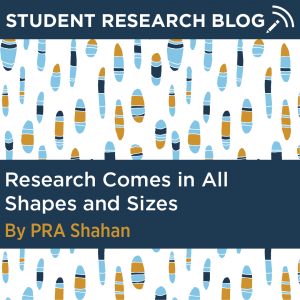 Research happens in a lab, on a bench, with a bunch of microscopes and pipettes and bottles of various liquids on the side. Right? Sounds right to me…or at least it did. Research is so much more than that. It just might take a while before you realize that.
Research happens in a lab, on a bench, with a bunch of microscopes and pipettes and bottles of various liquids on the side. Right? Sounds right to me…or at least it did. Research is so much more than that. It just might take a while before you realize that.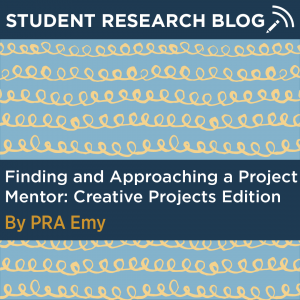 When I decided to apply for an IDEA grant, one step in the process really intimidated me. That step was approaching a project mentor. In creative endeavors, finding and approaching a project mentor works a little differently than in research. While there are no publications to read or labs to shadow in, there are artist statements, studio practices, and past work to learn about. These tips can help you select the right mentor, prepare for your first meeting, and ensure that you forge a relationship that will best serve your creative endeavors.
When I decided to apply for an IDEA grant, one step in the process really intimidated me. That step was approaching a project mentor. In creative endeavors, finding and approaching a project mentor works a little differently than in research. While there are no publications to read or labs to shadow in, there are artist statements, studio practices, and past work to learn about. These tips can help you select the right mentor, prepare for your first meeting, and ensure that you forge a relationship that will best serve your creative endeavors. 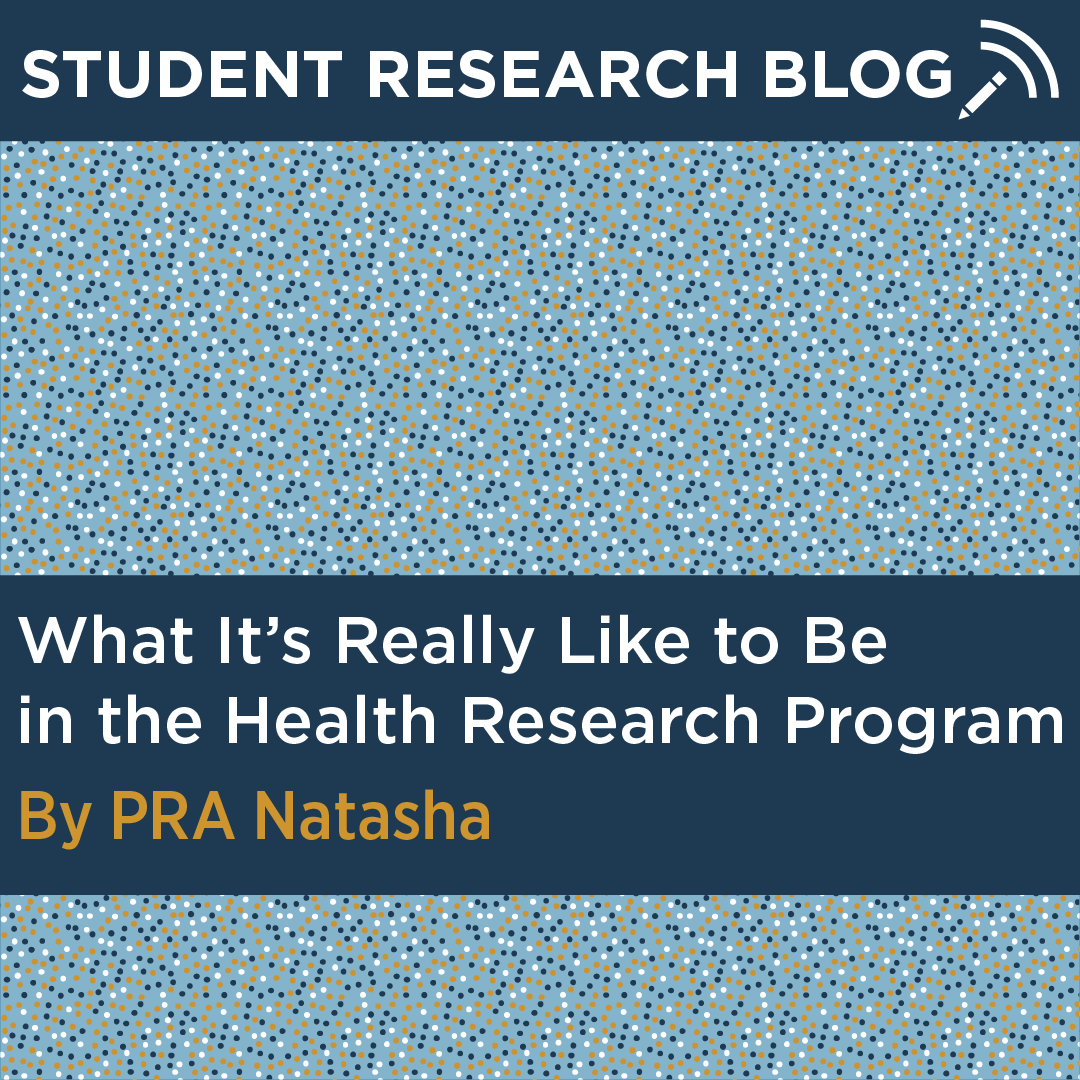 Are you interested in the
Are you interested in the 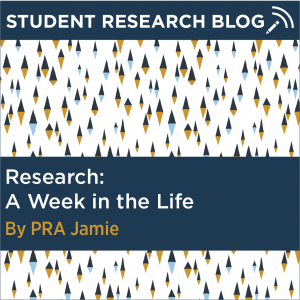 The idea of “doing research” sounds so vague and pretty daunting as an undergraduate student. For people in the sciences, we usually picture a person in a white coat with a beaker doing… something. As a freshman, I wasn’t sure what those people in lab coats were actually doing. I assumed it was important but really didn’t understand it.
The idea of “doing research” sounds so vague and pretty daunting as an undergraduate student. For people in the sciences, we usually picture a person in a white coat with a beaker doing… something. As a freshman, I wasn’t sure what those people in lab coats were actually doing. I assumed it was important but really didn’t understand it.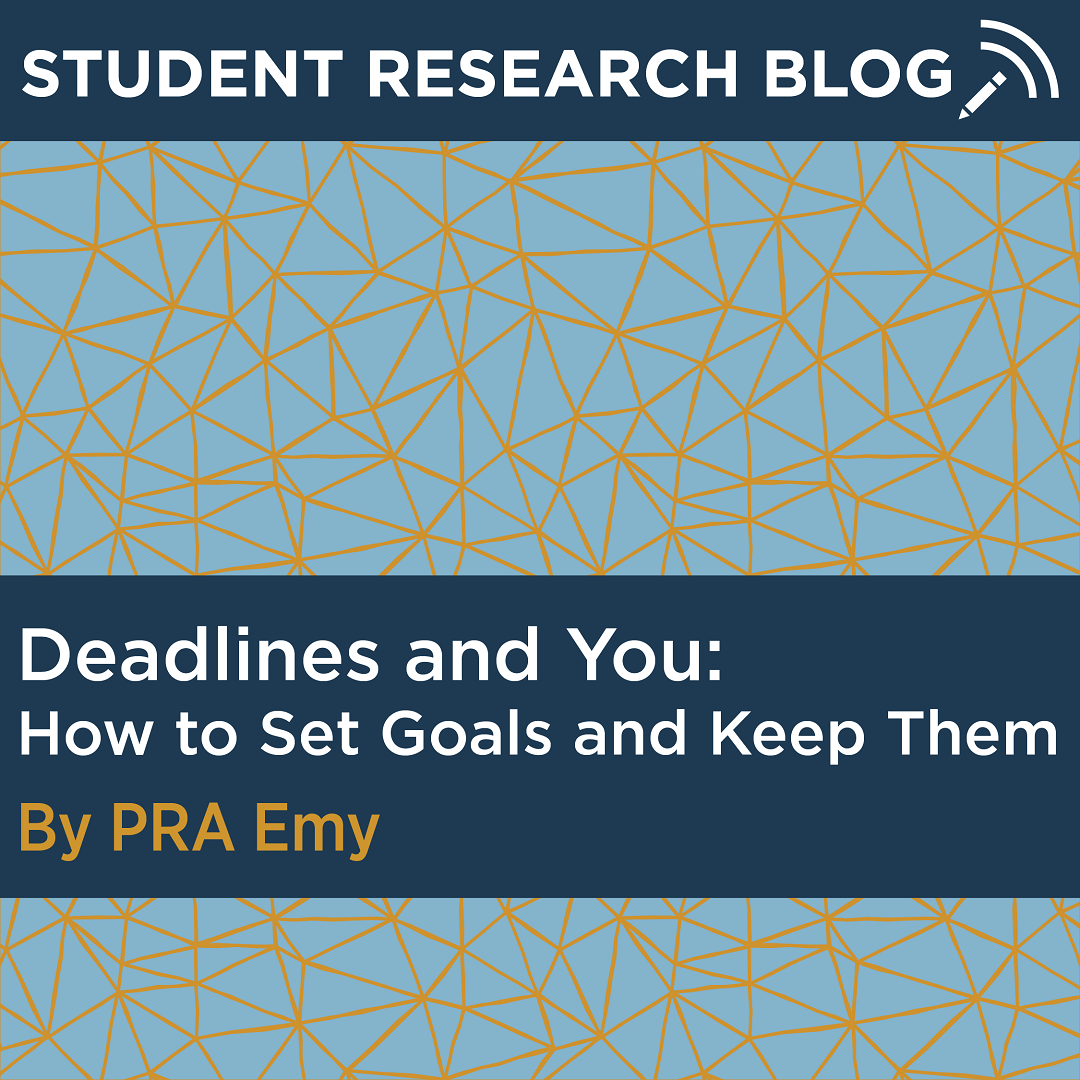 Every year, on the first day of school, I have high hopes for my organization. I’ll use my planner every day! I’ll clean my whole apartment every Thursday night! Healthy dinners every night? No problem! Inevitably, in the first few weeks, these lofty goals slowly start to crumble. Why? Because I do not effectively organize my deadlines. Finally, after many years, and many organizational failures I have figured out some strategies to keep me on track past the first two weeks of the semester.
Every year, on the first day of school, I have high hopes for my organization. I’ll use my planner every day! I’ll clean my whole apartment every Thursday night! Healthy dinners every night? No problem! Inevitably, in the first few weeks, these lofty goals slowly start to crumble. Why? Because I do not effectively organize my deadlines. Finally, after many years, and many organizational failures I have figured out some strategies to keep me on track past the first two weeks of the semester. 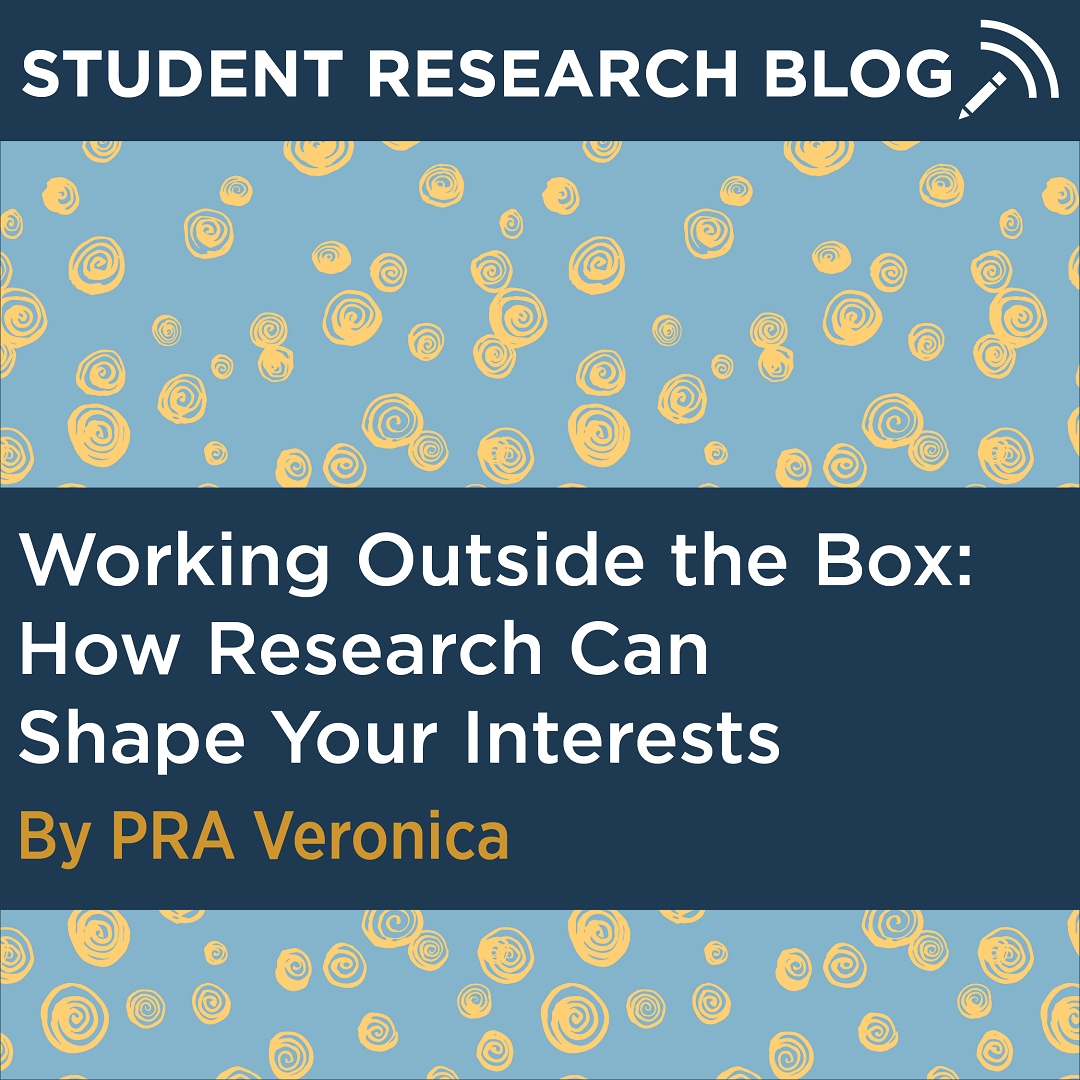 When thinking about participating in undergraduate research, we often think about our interests – whether that be infectious diseases, genetic disorders, the social dynamic of college students, or the best medium to present a beautiful work of art. I stumbled into a laboratory that is working on something that wasn’t necessarily at the top of my interest list, but I am all the better for it.
When thinking about participating in undergraduate research, we often think about our interests – whether that be infectious diseases, genetic disorders, the social dynamic of college students, or the best medium to present a beautiful work of art. I stumbled into a laboratory that is working on something that wasn’t necessarily at the top of my interest list, but I am all the better for it.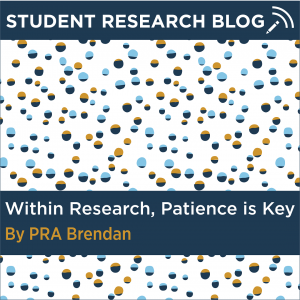 When I applied to UConn, I had no idea that I would be involved in research as a social science major, as I saw UConn as a center for innovative research in science and engineering. To be completely honest, I just simply thought of research as something that I would never be introduced to and understand.
When I applied to UConn, I had no idea that I would be involved in research as a social science major, as I saw UConn as a center for innovative research in science and engineering. To be completely honest, I just simply thought of research as something that I would never be introduced to and understand.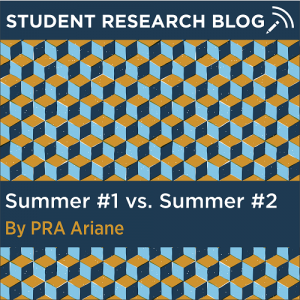 My freshman year I received a UConn IDEA grant to complete an independent research project over the summer. My sophomore year, I received a SURF award for the next steps in my research. Although I worked in the same lab both summers, lived on campus, and had more or less the same routine, the two experiences couldn’t have been more different from each other. What changed? I did!
My freshman year I received a UConn IDEA grant to complete an independent research project over the summer. My sophomore year, I received a SURF award for the next steps in my research. Although I worked in the same lab both summers, lived on campus, and had more or less the same routine, the two experiences couldn’t have been more different from each other. What changed? I did!